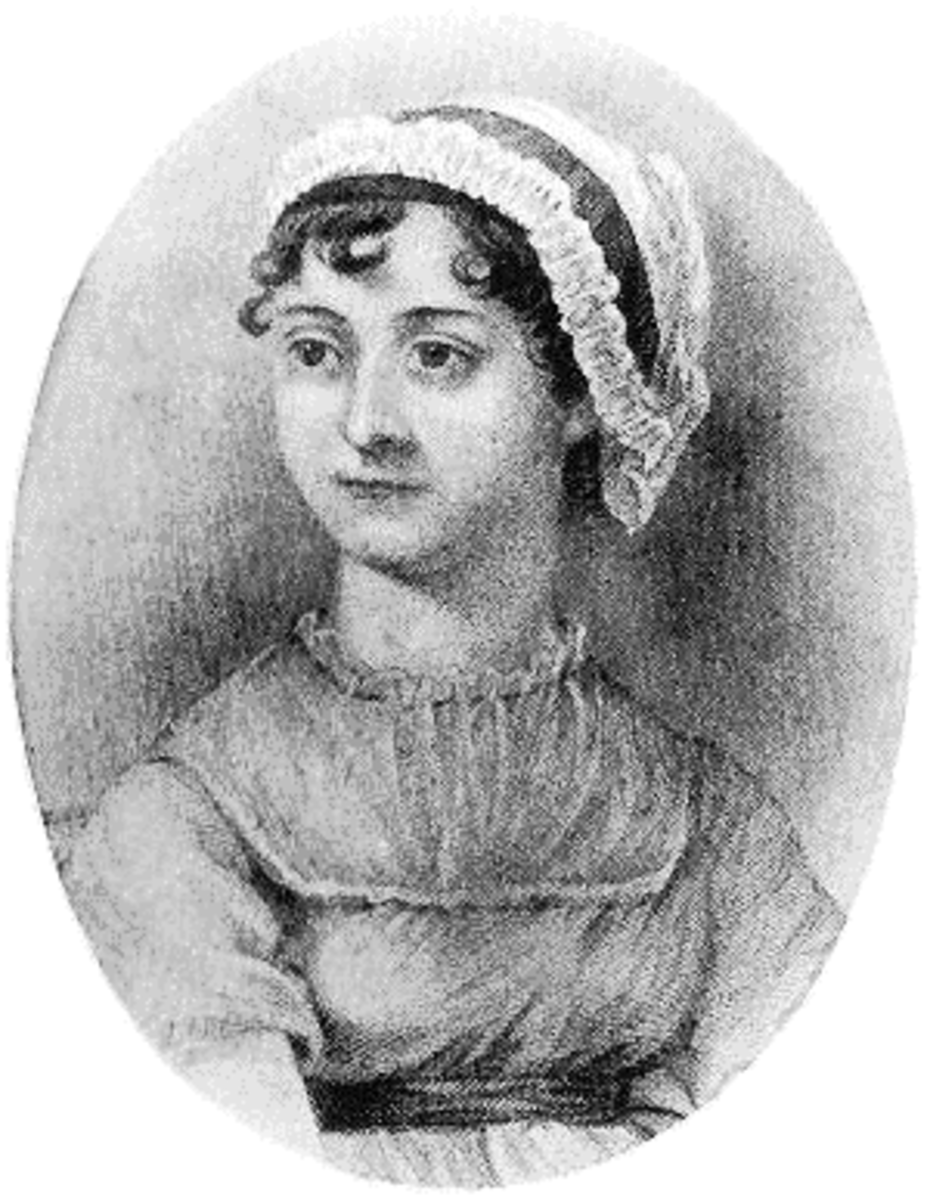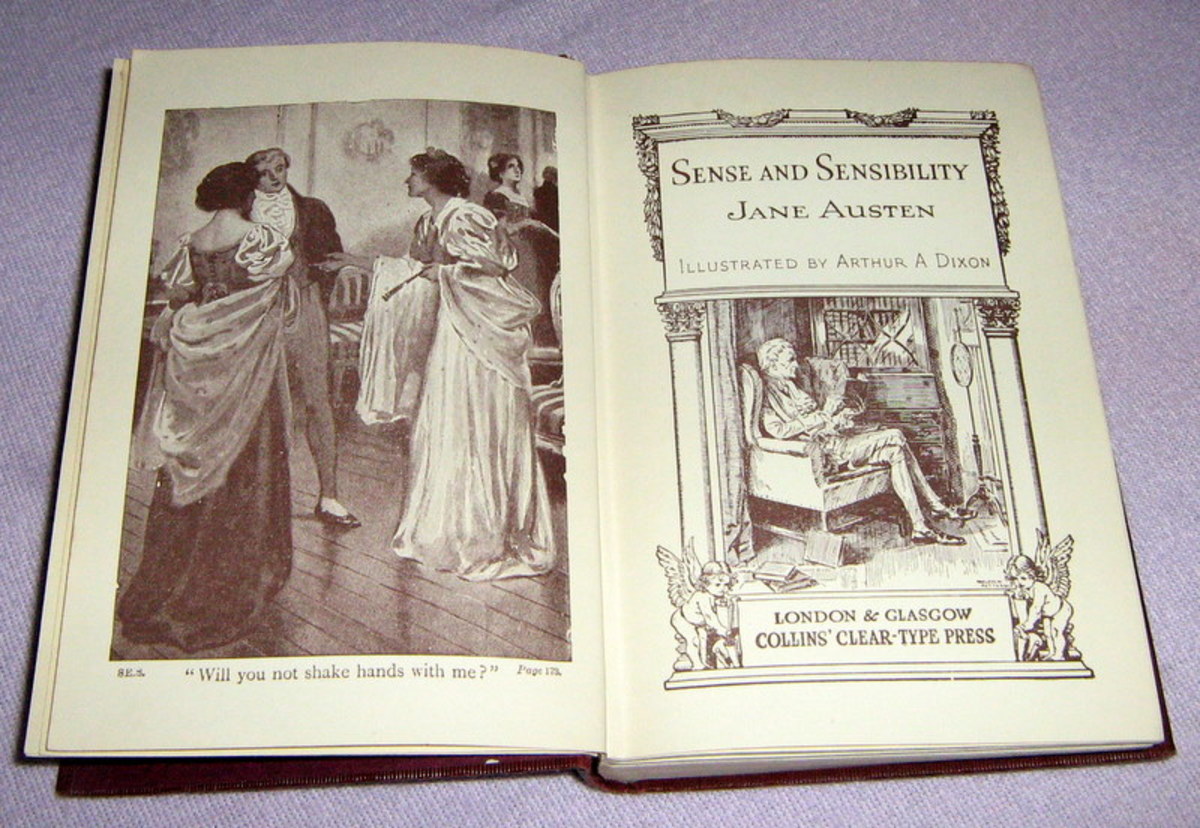- HubPages»
- Books, Literature, and Writing»
- Literature»
- English Literature
Are Fanny Price and Elizabeth Bennet Really That Different?
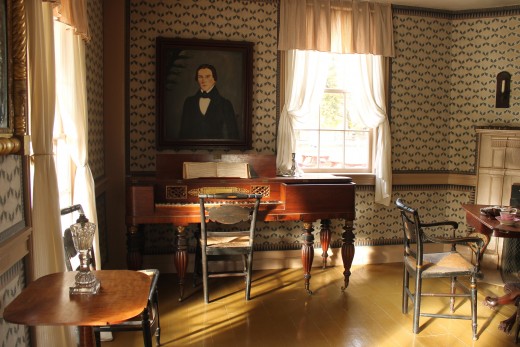
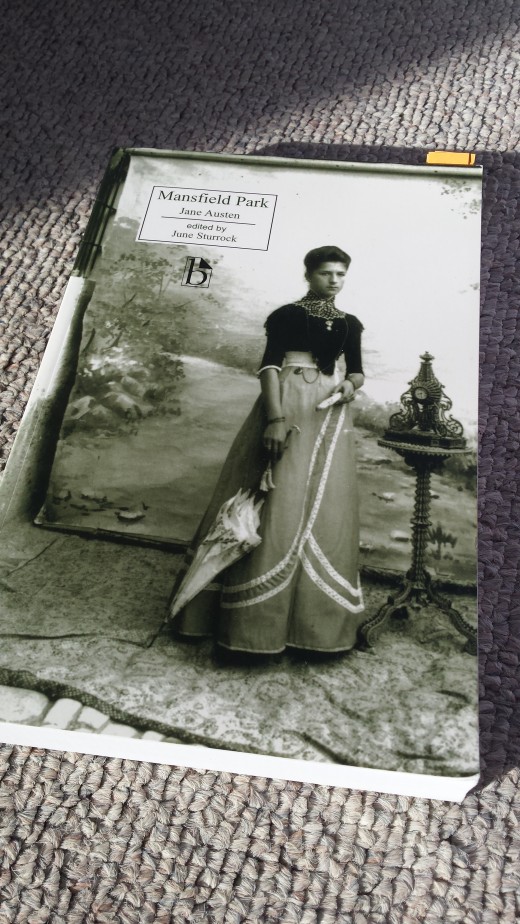
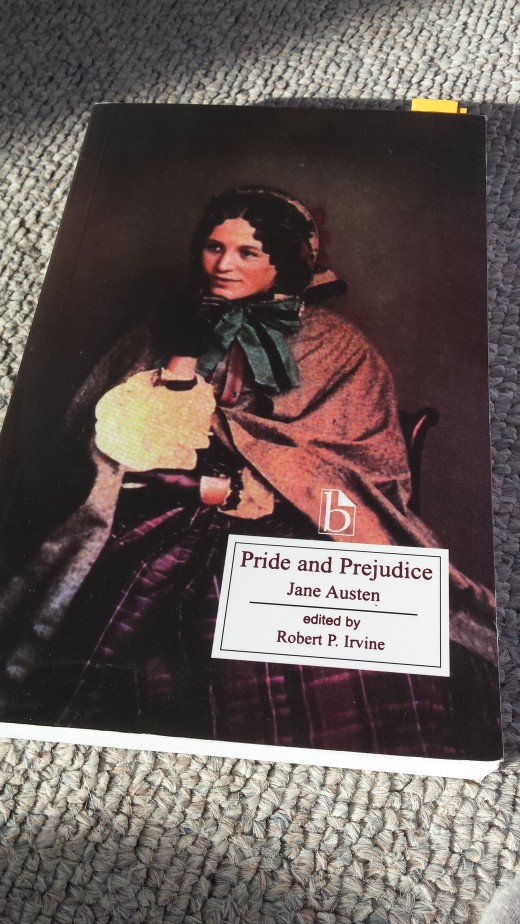
Trailer for Pride & Prejudice (2005)
Trailer for Mansfield Park (1999)
June Sturrock writes that “Fanny Price could hardly be more different than Elizabeth Bennet” (12). Fanny, from Austen’s Mansfield Park, is often contrasted with Elizabeth, from Pride and Prejudice, as a fundamentally different character, a kind of polar opposite. Elizabeth is often described as “witty, energetic, talkative, assertive,” while Fanny is “priggish, lifeless, unattractive, and censorious” (Sturrock 12). This paper will argue that their differences in character arise from their different social positions, or their distinct circumstances, and that both characters are not as different as some critics claim. Elizabeth has more power in her own position and thusly has the freedom to be more transgressive. Fanny, who is far more timid, has less power and is more vulnerable than Elizabeth. The following paragraphs will examine the differences between their positions in their homes as well as how they are treated by their family members. This paper will examine how these circumstances have made Fanny more observant and passive, and Elizabeth more engaged and active with the world around her. In examining how they both reject unwanted proposals, this paper will show some of the similarities between the two characters, and how, underneath the surface of their differences, they are both examples of strong women who can act independently and stand up for themselves. The next paragraph will address Fanny and Elizabeth’s social positions within the home.
Fanny and Elizabeth occupy different social positions within their homes, and the amount of power that they have within the home affects the development of their characters and how free they are to express themselves. Fanny is a poor relation in the Bertram household and is taken in as an act of charity to her mother, Mrs. Price, who is of the lowest economic class of the three sisters. Mrs. Norris, her aunt, says she should be put in “the little white attic… not far from the girls, and close by the housemaids” (Austen 41, 2003). Fanny is to occupy a space between the family and the servants, both physically and metaphorically. Sir Thomas Bertram, her uncle, says that they must “make her remember that she is not a Miss Bertram” and that she and their children “cannot be equals” (Austen 41, 2003). Fanny occupies a social position in the household which places her lower than the Bertrams and higher than the servants. She belongs to neither of these categories, and is isolated in her position, save for her friendship with Edmund. Sturrock writes that “Austen consistently represents Fanny as vulnerable, as the smallest, youngest, least loved and lest respected member of her family circle” (12-13). This vulnerability means that Fanny is always at risk. If she does not behave well, she may lose her place with the Bertrams, be cast out and rejected, or be treated poorly within the home. Fanny cannot be transgressive. She learns to occupy her delicate position with silence, timidity, and feminine ‘good conduct’ as described by the literature of the time. This is how she learns to navigate her vulnerability in the Bertram household.
In contrast to Fanny, Elizabeth is loved and favoured in her family, particularly by her father. In the first chapter of Pride and Prejudice, Mr. and Mrs. Bennet discuss the arrival of a single man, Mr. Bingley, in their small town. Mr. Bennet describes wanting to put in a good word for Elizabeth as a suitable match for Mr. Bingley, to which Mrs. Bennet responds, “Lizzy is not a bit better than the others… But you always give her preference” (Austen 44, 2003). Mr. Bennet does not deny this preference, and even states that, “Lizzy has something more of quickness than her sisters” (Austen 45, 2002). Elizabeth is the favourite daughter of the patriarch of her house, who is fond of her wit and gives her the leniency to speak her mind. Mawman writes that “Elizabeth… is represented as combining quickness of perception and strength of mind, with a playful vivacity something like that of her father” (Mawman). His preference for her may arise from the similarities they share. Unlike Fanny, she has not been displaced in another relation’s home and is far from the “least loved” member of her family (Sturrock 13). She lives with her parents and experiences a sense of belonging in her household. Elizabeth is less vulnerable than Fanny and has more power. She can speak her mind, transgress some social boundaries, and develop a confidence in her own intelligence, which her father encourages. Her position in the house allows her more freedom than Fanny experiences with the Bertrams.
Fanny and Elizabeth’s social positions within their homes directly affect how they are treated by their family members. In one scene in Mansfield Park, Fanny is made to cut roses by her aunts, Lady Bertram and Mrs. Norris, as well as walk to and from Mrs. Norris’ house in the hot sun. These activities give her a headache, and when her cousin Edmund learns about them, he is concerned for her wellbeing and the way she has been treated. A discussion ensues between Mrs. Norris, Lady Bertram, and Edmund about Fanny as though she is not there. Edmund asks, “And could nobody be employed on such an errand by Fanny?” (Austen 99, 2003). He wonders why a servant had not been employed in the job. Mrs. Norris, in response to his inquiry, says that “If Fanny would be more regular in her exercise, she would not be knocked up so soon” (Austen 99, 2003). Mrs. Norris refuses to take responsibility for Fanny’s feeling unwell, instead stating that her niece should get more exercise in order to be prepared for tasks such as these. She also tries convince Edmund that she thought the activity would do Fanny good by giving her the exercise she needed. Neither Lady Bertram nor Mrs. Norris acknowledge that they have treated Fanny like a servant. Edmund, Fanny’s one friend in the Bertram household, is the only one who comes to her defence and calls them out for this. When Mrs. Norris responds by saying that it is Fanny’s fault for not getting more exercise, she is implying that Fanny should be employed in more physically strenuous tasks and given more work within the household. Earlier in this scene, when she discovers that Fanny has been lying on the sofa in the drawing-room, she reprimands her, saying, “Why cannot you come and sit here, and employ yourself as we do? - If you have no work of your own, I can supply you from the poor-basket” (Austen 97, 2003). The three other women in the room have not been working on anything. Maria has been reading a book, Lady Bertram has been falling asleep, and Mrs. Norris has been sitting silently. According to Mrs. Norris, Fanny “should learn to think of other people” and engage herself in work (Austen 97, 2003). For Mrs. Norris, Fanny occupies a position more akin to servant than family member within the house. For Edmund, she is a family member, and he is shocked to see her treated otherwise. However, he still talks about Fanny as if she was not there, which would have been a common practice with servants in the household. No one asks Fanny for her opinion, Edmund only asks if she has a headache, and instead she is to be debated about. She remains silent and passive while her place in the house is determined by others. Dr. John Gregory, author of a conduct book for female behaviour, writes that “modesty… will naturally dispose you to be silent in company” (Gregory). Hannah More, also a conduct book author, writes that women should have a “submissive temper and a forbearing spirit” (More 489). In this scene, Fanny exemplifies these traits. She is silent, submissive, and forbearing of the treatment of her aunts and the discussion about her. Though she plays the part of an ideal conduct book lady, she does this in order to protect herself. Due to her social status, Fanny does not have the power to stand up for herself. Only Edmund can do this for her. She is vulnerable to mistreatment within the home. By behaving like a proper lady, she shields herself from further attack and continues to walk the delicate line between being a “Miss Bertram” and a servant.
In Pride and Prejudice, Elizabeth is never employed as a servant, which would be seen as inappropriate by her family. When Mr. Collins, the relative who is to inherit Longborn from Mr. Bennet, pays a visit and stays for dinner, he asks the Bennet family which of the daughters prepared the meal. Mrs. Bennet responds by correcting him, “with some asperity that they were very well able to keep a good cook, and that her daughters had nothing to do in the kitchen” (Austen 100, 2002). Mrs. Bennet is offended that Mr. Collins suggests that any of her daughters would be employed in domestic tasks, as their family is of a high enough class to be able to afford servants. Elizabeth is not exempted from this. Though she is not her mother’s favourite, she still belongs to the Bennet household and is never treated like a servant. There are no blurred lines to this distinction, she is firmly a part of the gentry, which her mother makes sure to assert in this scene. Elizabeth is not at the risk in her home of being treated unfairly like Fanny, of being placed in a subservient position. As Sturrock notes, “Fanny Price could hardly be more different than Elizabeth Bennet… Elizabeth is witty, energetic, talkative, assertive” (12). Elizabeth has the space and freedom within her house to exemplify these qualities. Gregory writes that, “Wit is the most dangerous talent you can possess… it will create you many enemies” (Gregory). Fanny is already at risk of having negative relationships with her relatives as an outsider of lower class status, of “creating enemies,” and thus cannot embody the qualities Sturrock notes in Elizabeth. Elizabeth’s position within the house and relationship with her family mean that she can transgress social norms and embody the “dangerous talent[s]” outside of the rules for female conduct found in the literature of the time.
The differences between their positions within the house and how they are treated by their families result in two different characters. Fanny resides on the side-lines and learns to become more observant while Elizabeth is able to engage and actively participate in what is going on around her. These two different ways of interacting with the world are exemplified in their relationships with others. This paper will focus specifically on Fanny’s relationship with her cousin, Julia, and Elizabeth’s relationship with her sister, Jane, which demonstrate their divergent approaches to the world well. In Mansfield Park, After being used and discarded by Henry, who turns his focus to her sister Maria, Julia is left to suffer unrequited love and jealousy. Her family are busy and focused elsewhere, on the play and their relationships with others, and do not notice that she is in pain. Fanny, who refuses, until the end, to participate in the play, recognizes Julia’s suffering and even feels sorry for her. She does not, however, reach out to Julia in order to comfort her or form a connection over their mutual suffering. The two are described as, “two solitary sufferers, or connected only by Fanny’s consciousness” (Austen 181, 2003). Due to her observant nature, Fanny is the only one in the family who recognizes Julia’s suffering. She does not do anything about this because she is so used to being passive, backgrounded, and silent. In order to connect with Julia, she would have to break through the boundaries which have been set up for her since her arrival at Mansfield. She refuses to act, both in the play and with Julia, because this is how she has learned to cope with her marginal social position.
Elizabeth has a very different relationship to her sister Jane than the one exhibited by Fanny and Julia. When Elizabeth hears that Jane has fallen ill while staying with the Bingley’s at Netherfield, she walks for three miles “in such dirty weather” in order to see her (Austen 70, 2002). Though frowned on by Mrs. Hurst and Miss Bingley for walking there, Jane is “delighted at her entrance” and very happy that her sister has come to look after her while she is sick (Austen 71, 2002). At the height of her illness, Elizabeth barely leaves Jane’s bedside and stays at Netherfield for several days, until she is well enough to go home with her. As soon as Elizabeth hears that her sister is suffering, she launches into action. When she is unable to use horse or carriage, she walks. She cannot be talked into leaving the care of Jane to the Bingley’s. This is a perfect example of Elizabeth’s more engaged and active nature. When she observes suffering, especially the suffering of someone she cares about, she does not pause to think about it, she acts immediately and attempts to ease that person’s suffering. Robert Irvine references what he refers to as “the attractiveness of Elizabeth’s independence” (23). In reference to her walk to Netherfield, Miss Bingley says, “It seems to me to shew an abominable sort of conceited independence” (Austen 73, 2002). In walking to Netherfield, Elizabeth demonstrates not only that she possesses an independence of mind, but that of agency. Elizabeth acts independently in how she engages with the world, and besides the disapproval of those like Miss Bingley, she seems to face little consequence for this in relation to her social position. She is not reprimanded for her act of independence by her family or Mr. Bingley.
Fanny and Elizabeth are not as different as Sturrock suggests, but are simply from very different circumstances. Both Fanny and Elizabeth respond very strongly when they are proposed to by Henry Crawford and Fitzwilliam Darcy respectively, standing up for themselves and maintaining their independence. When Mr. Crawford proposes to her, Fanny begs him not to, saying “This is a sort of talking which is very unpleasant to me” and “This is all nonsense. Do not distress me. I can hear no more of this” (Austen 308, 2003). After she rejects him, Fanny rushes out of the room before her uncle, Sir Thomas, arrives, in order to avoid further confrontation. Fanny has observed Henry’s behaviour with her cousins Julia and Maria, whose hearts he has played with, and therefore sees his true character. Sturrock notes that Fanny is “courageous, loving, observant and intelligent - the only person in the novel who really sees what is going on” (13-14). It is through her observant and thoughtful nature that Fanny has a strong sense of Henry’s character. After his proposal to her, she thinks, “he could do nothing without a mixture of evil” (Austen 309, 2003). Fanny does not believe that Henry Crawford is a good man and does not wish to marry him. When she rejects him, she demonstrates her right to choose, maintains her independence, speaks her mind, and defends herself from what she perceives would be a lifetime of unhappiness with him. She even does all of this against her uncle’s wishes. Sir Thomas wants Fanny to accept Henry, and he believes that she is, “throwing away… such an opportunity of being settled in life, eligibly, honourably, nobly settled, as will, probably, never occur… again” (Austen 324, 2003). Sir Thomas believes that Fanny is lucky to have been proposed to by a man of such high social and class standing, given her far lower position, and does not understand why she rejects him. He becomes angry with her, thinking she is acting with stupidity and selfishness. Fanny, however, knows her own heart and is willing to defend it. She is in love with Edmund and does not trust Henry. Though she is willing to be submissive and passive in many other instances, she will not allow herself to enter into a marriage that she does not want. Fanny understands what it is like to be vulnerable, given her position in the Bertram household, and she sees that accepting Henry would make her even more vulnerable, because she has seen how he treats other women. Later in the novel, his poor character is confirmed when he runs away with Maria, ruining her reputation. Fanny cannot afford to risk ruining her reputation as a chaste woman because it is all that she has to keep her respectable in her delicate social position. She will not allow Henry to lead her to social ruin in polite society, making her even more vulnerable, or to make her unhappy.
Elizabeth rejects Darcy in a similarly blunt and honest way. In rejecting him, she says, “I have ever reason in the world to think ill of you” (Austen 212, 2002). Elizabeth does not trust Darcy and believes he is of questionable character. She confronts him for the wrongs she thinks he has committed, firstly in turning Mr. Bingley away from her sister, and in treating Mr. Wickham so poorly. Though she is misguided and does not have the whole story on Darcy, as she is less observant than Fanny, she rejects him on the basis of her feelings for him and because she believes that he is not a good man. Elizabeth sees Darcy the same way that Fanny sees Henry. The difference is that Elizabeth is wrong about his character. Rivington writes that, “Of the characters, Elizabeth Bennet, the heroine, is supported with great spirit and consistency throughout; there seems no defect in the portrait” (Rivington). Elizabeth, however, is not entirely without defect. She prides herself on her wit and intelligence, but from early in the novel forms a strong prejudice against Darcy based on misinformation. After receiving his letter, in which he explains what happened with her sister as well as Mr. Wickham, she is ashamed at how quickly and harshly she judged him. Returning to Gregory on the dangers of wit, he writes, “Wit is so flattering to vanity, that they who possess it become intoxicated, and lose all self-command” (Gregory). Elizabeth has been free to express her wit, but this may have filled her with pride and blinded her to what was really going on. In Mansfield Park, the less biased and more observant Fanny sees right through Mr. Crawford. It takes Elizabeth, however, a letter of explanation from Darcy in order to see his true character. Her talkative, active, engaged, and assertive traits have prevented her from observing and reflecting on people the way that Fanny does. Just as Fanny is not only flawed, Elizabeth is not completely flawless, and though their different social positions create different character traits within them, they have their similarities as well, such as their mutual ability to protect themselves from men they do not trust.
In conclusion, Fanny and Elizabeth are not as vastly different as critics such as Sturrock suggest, and many of the differences they do have arise from their social conditions. Fanny is quiet, observant, and passive because she has a low social position within her family, and is often seen as sitting between the gentry and the servant classes. Due to her vulnerable position, Fanny learns to follow female standards of conduct in order to continue on with the Bertrams and to prevent mistreatment from her family. Elizabeth, given preference by her father and love within her own home, is in a less vulnerable social position, which means that she can act more transgressively. She is less at risk of losing her position within the home if she loses favour with others. Elizabeth can afford to actively engage with others, speak her mind, and wield her wit without reprimand or rejection. Their different contexts affect their characters, leading Fanny to be more observant and Elizabeth to be more engaged. They are not, however, complete opposites, as one can see when each rejects unwanted proposals to men they do not wish to marry, maintaining their independence and keeping themselves safe from people that they do not trust. Sturrock writes of Fanny, “To respond to her simply, with either love or hatred, is to miss the nature of the novel” (16). Though many critics openly dislike Fanny and give preference to Elizabeth, responding to either character with “love or hatred” is too simplistic. Both characters are equally complex and compelling. Both are products of their surroundings, and both have the potential to be the other if their roles were reversed.

References
Austen, Jane. Mansfield Park. Ed. June Sturrock. Toronto: Broadview, 2003. Print.
Austen, Jane. Pride and Prejudice. Ed. Robert P. Irvine. Toronto: Broadview, 2002. Print.
Gregory, John. “Conduct and Behaviour.” A Father’s Legacy to His Daughters. London: 1808.
Irvine, Robert P. “Introduction.” Pride and Prejudice. Toronto: Broadview, 2002. 12-23. Print.
Mawman, J. Critical Review: or, Annals of Literature. 4th series. III. 3. March 1813. London.
More, Hannah. “The Benefits of Restraint.” On the Modern System of Female Education. London: 1799
Rivington, F.C. and J. Rivington. The British Critic. XLI 2. February 1813. London.
Sturrock, June. “Introduction.” Mansfield Park. Toronto: Broadview, 2003. 12-16. Print.


